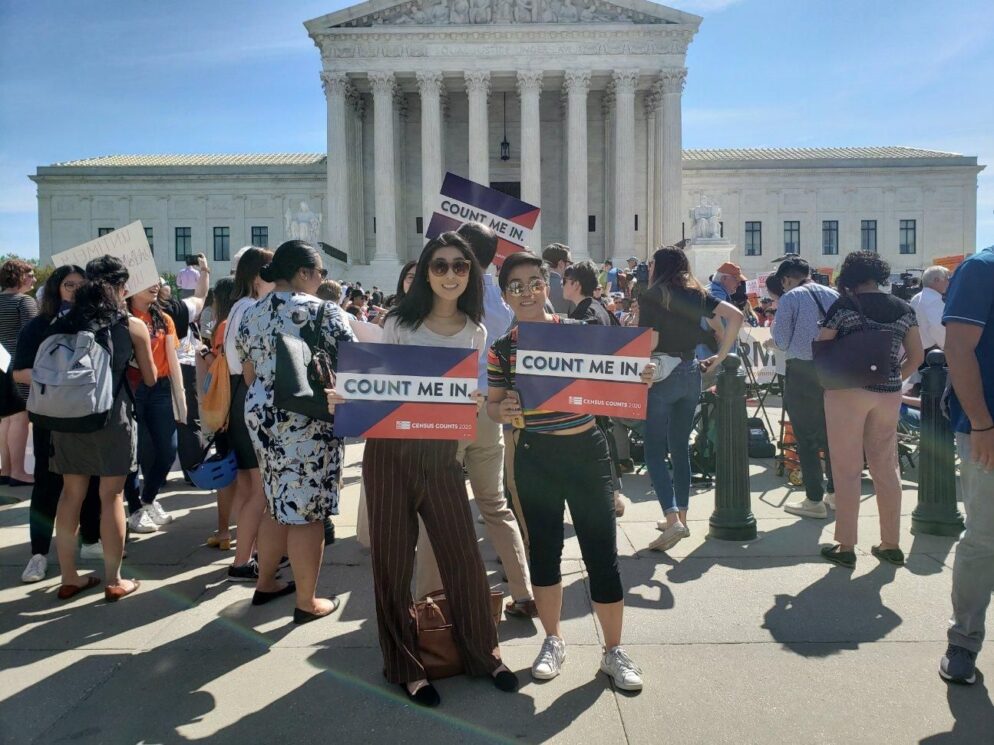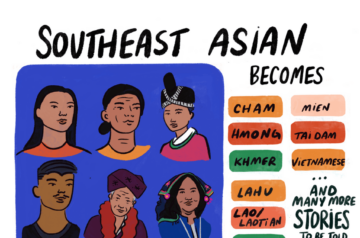The census is the largest publicly available dataset with SEAA data. It directly influences political representation and funding for our communities.
Key resources:
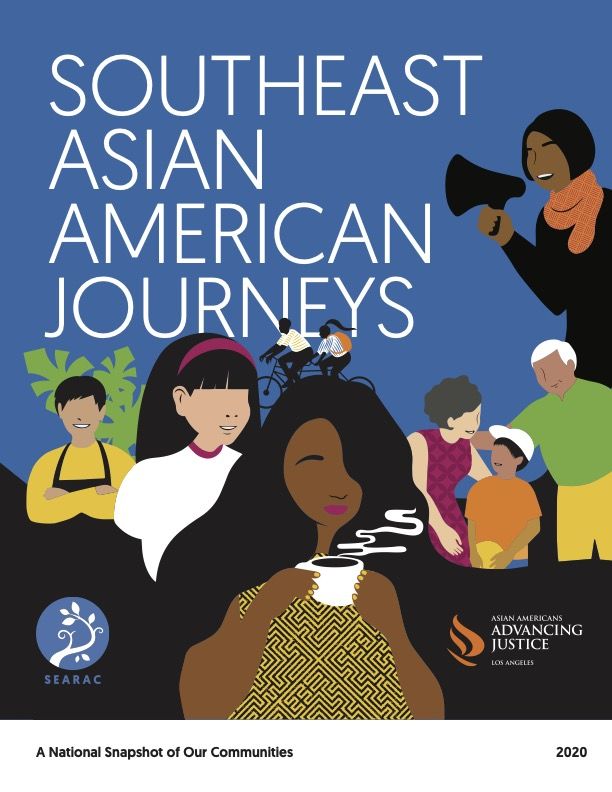
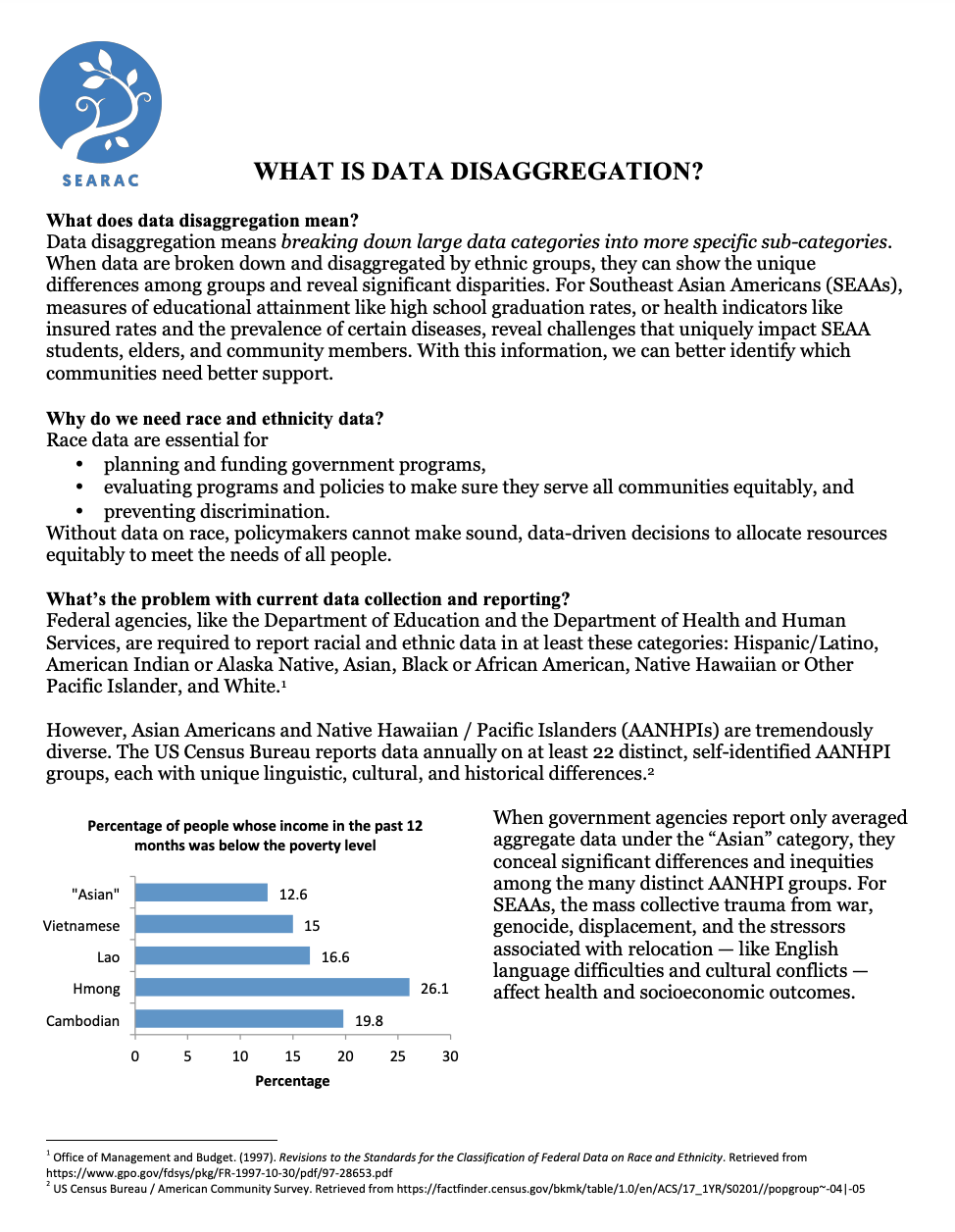
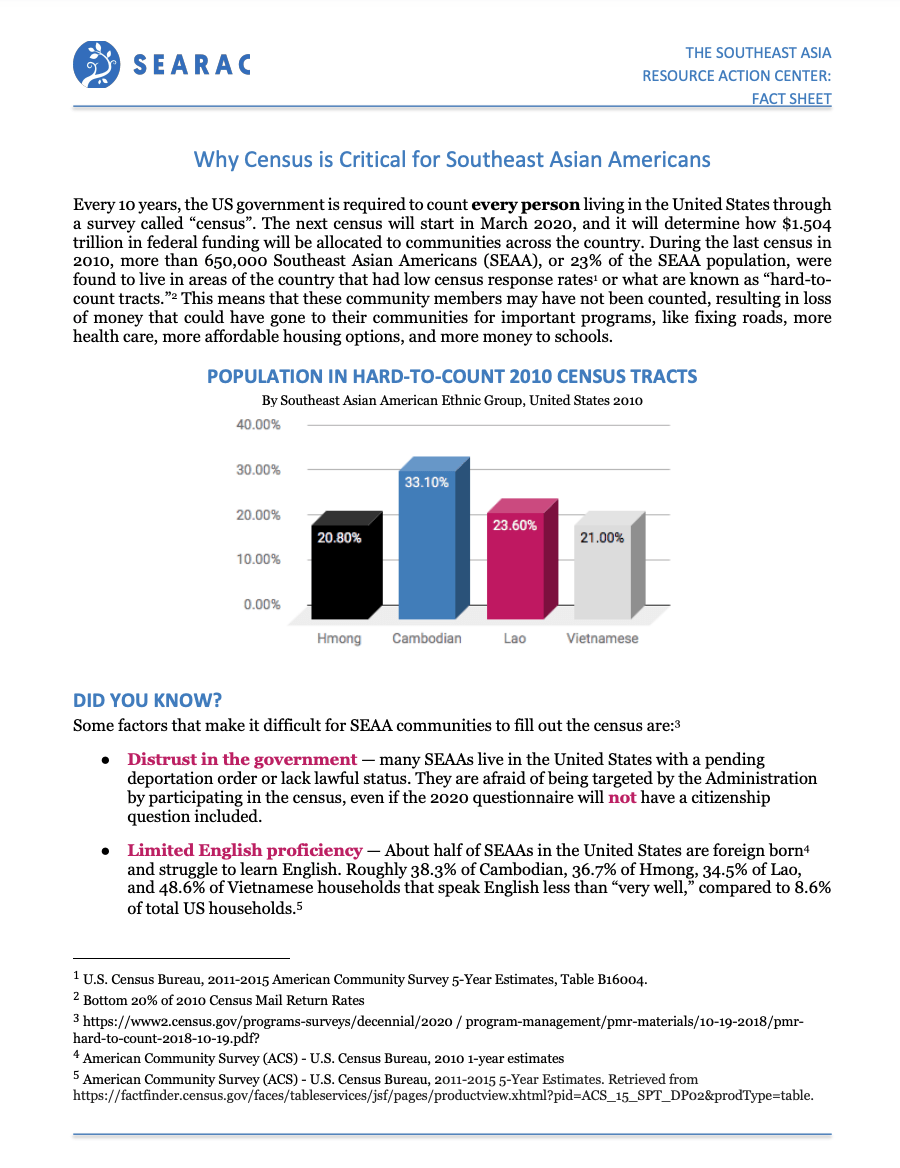
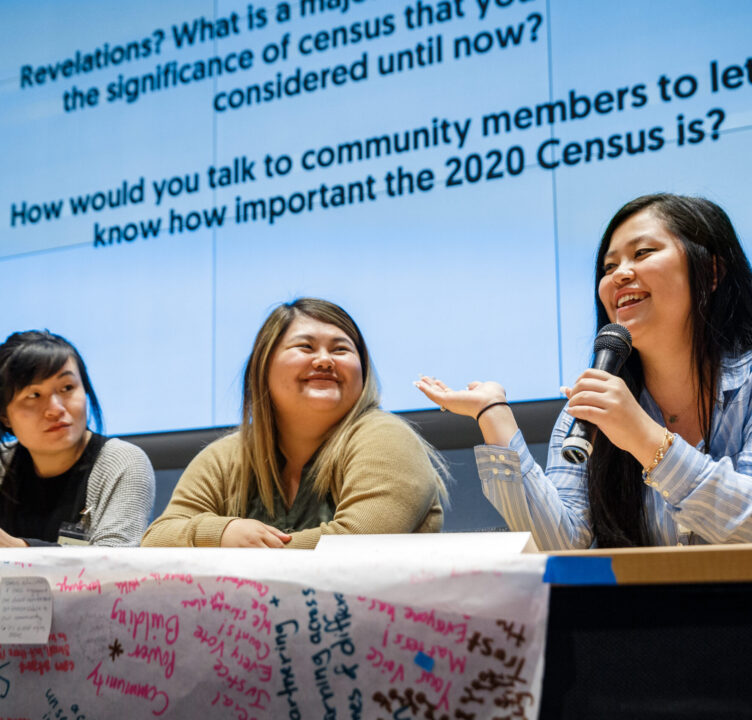
Featured story
Hmong Leaders Meet with Census Director on Hmong Misclassification
On Thursday, May 23, 16 Hmong and Asian American advocates met with Director Robert L. Santos of the US Census Bureau to discuss the need to reclassify the Hmong as Southeast Asian. The meeting comes as a result of a letter and petition with over 1,700 signatures to Director Santos asking the Bureau to address the issue and meet with community leaders.
Learn more
“We talk about how it is so important for us as a group of people to participate in the census, so we show up in the data. Once that data comes out, we will have information about ourselves. Right now, we don’t know how many of us live in the Bay Area, or even the city of Richmond.”
Director, Asian Senior/Adult Daycare Center

“I want to help Cambodians and other minorities be counted in the 2020 Census. We are a minority of a minority group. We are Asians, but we’re also Cambodians. There are only 260,000 of us in the United States according to the 2010 Census, so having everyone counted is important.”
Technical engineer

“It’s vital for us to know each other as a community, locally and nationally. Where are we, how many of us are there, and how can we use our collective numbers to be changemakers? These are questions I find myself asking when I’m planning my dance classes or looking out to a crowd during a performance.”
Director, Cambodian American Girls Empowering
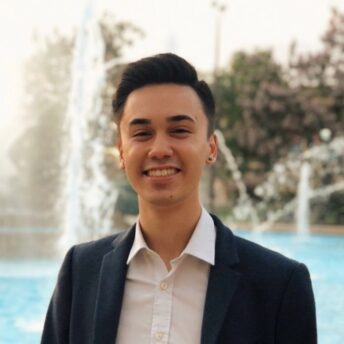
“I’m the son, nephew, and grandson of Vietnamese refugees who benefited from ESL education and other social programs, and I feel like we’ve come full circle now that I’m a first-generation college graduate and ESL teacher. I know that the type of services my school district and I are able to provide relies on data from the Census, so it is so important that educators encourage their community members to complete it.”
ESL Teacher
“When individuals are invisible in data, they remain invisible in policy conversations. To understand how groups within the AAPI community fare in higher education and the specific challenges each face, we must disaggregate data along racial and ethnic lines. Doing so will reveal where inequities exist and, in turn, unlock the full power of postsecondary education to spur social mobility, economic health, and a stronger society.”
Institute for Higher Education Policy
“Without data disaggregation, this system makes students like me invisible, our needs are downplayed, and resources aren’t offered. Data disaggregation allows for students like me to be seen, to get the resources we need, and to reach our fullest potential.”
Minnesota student
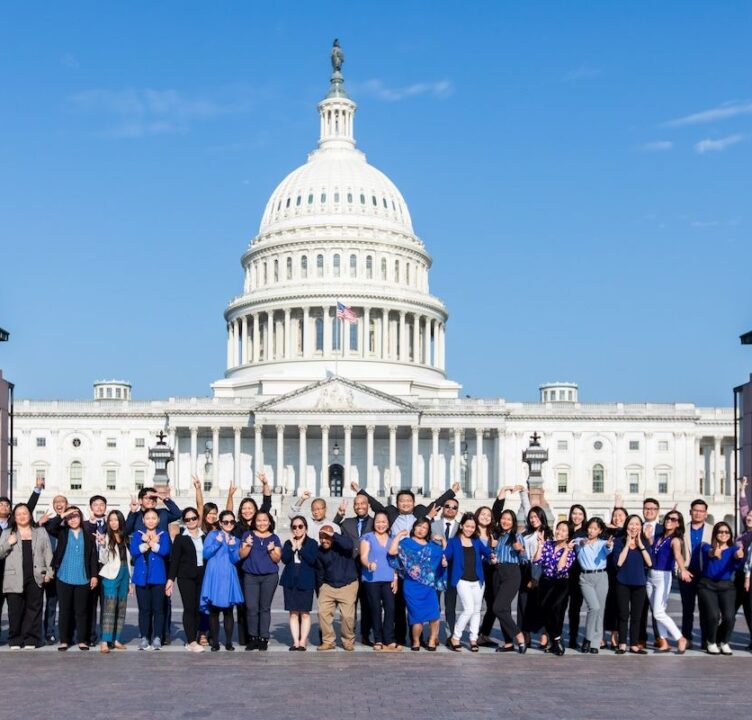
Subscribe to our newsletter for the latest updates on the SEARAC community, and to learn more about how you can get involved.
SEARAC`s February newsletter is now live! Check out national and California policy updates from the SEARAC team: searac.org/news/2026-news-in-review/
Feb 27

Last night, President Trump lied to the American people. He spun an illusion of America where communities are safe from violence, healthcare costs are the lowest they’ve been, and children have all the supports they need to learn. Quyên Đinh, SEARAC Executive Director, shared, "Our communities are unveiling the truth of this Administration’s cruelty. Our strength has always come from collective action, from generations standing together and demanding better. Despite the President’s lies last night, we know that progress, justice, and truth will ultimately prevail."
Read the full statement at the link in our bio.
Feb 25

The Southeast Asian Deportation Relief Act #SEADRA will prevent deportations of Southeast Asian refugees, ensure access to work permits, and end ICE check ins. Southeast Asian Americans deserve safety, dignity, and a chance to thrive. Tell Congress to support #SEADRA and endorse it today: linktr.ee/searac.
Feb 24

With families at risk today, we choose action and hope. Southeast Asian Deportation Relief Act #SEADRA would protect Southeast Asian refugees and immigrants, keep families together, and restore due process. The time to pass SEADRA is now. Join us in standing with our communities against unjust detention and deportation and endorse SEADRA today: linktr.ee/searac.
Feb 23

Last week, @searac and @seafnofficial celebrated the reintroduction of the Southeast Asian Deportation Relief Act #SEADRA. SEADRA affirms a simple truth: Southeast Asian Americans deserve to live in safety, stability, and dignity with their families. Thank you to @repjudychu and @pramilajayapal for being champions of this bill and to our Southeast Asian American community leaders for honoring us with your powerful stories. We know community wins are possible with collective action. Watch a recording of the event and endorse SEADRA today: linktr.ee/searac.
Feb 23


